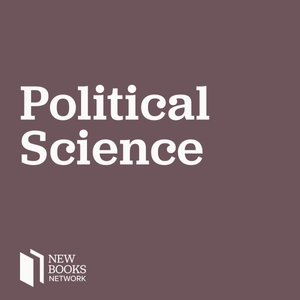
Working-time reduction: For us or for the planet? - Stefanie Gerold
02/08/22 • 42 min
In a world where we acknowledge ecological boundaries, consumption patterns must change. Many ecological economists would argue that not only the way we consume but the way we work must also change. Leaving behind the overriding aim of economic growth at all costs means that work needs not only to be perceived differently but also distributed differently. A common suggestion that occurs in these discussions is the necessary reduction of working hours. Stefanie Gerold explains us why.
In a world where we acknowledge ecological boundaries, consumption patterns must change. Many ecological economists would argue that not only the way we consume but the way we work must also change. Leaving behind the overriding aim of economic growth at all costs means that work needs not only to be perceived differently but also distributed differently. A common suggestion that occurs in these discussions is the necessary reduction of working hours. Stefanie Gerold explains us why.
Previous Episode

Rich and famous vouching for change? – On the role of climate elites and philanthropists - Edouard Morena
More and more of the rich and famous are taking up climate activism and try to convince the world that we all need to act now. But what is their message? Ecological economics is about realising that business-as-usual no longer works. Instead of techno-optimism, we need real system change. But what exactly are climate elites saying? What is the role of philanthropy in climate politics? And how does this all feed into sustainability transitions? Do they help our cause or just defer fundamental change? Today’s guest, Edouard Morena helps us figure this all out.
Next Episode

Less is more for more: Degrowth, sustainability and equality - Jason Hickel
Degrowth is a research field and a social movement that aims to transcend the primacy of economic growth and transition societies to an ecologically more sustainable and socially more just world. Overcoming our environmental sustainability hurdles through mainstream approaches like eco-modernisation does not even try to tackle the problems of social injustices like inequality. Our guest, Jason Hickel argues that the root of environmental and social problems is the same and through Degrowth we can address both of them at the same time. In this episode we talk about the solutions suggested by Degrowth to both sustainability and more equality.
If you like this episode you’ll love
Episode Comments
Generate a badge
Get a badge for your website that links back to this episode
<a href="https://goodpods.com/podcasts/economics-for-rebels-203079/working-time-reduction-for-us-or-for-the-planet-stefanie-gerold-20706748"> <img src="https://storage.googleapis.com/goodpods-images-bucket/badges/generic-badge-1.svg" alt="listen to working-time reduction: for us or for the planet? - stefanie gerold on goodpods" style="width: 225px" /> </a>
Copy




